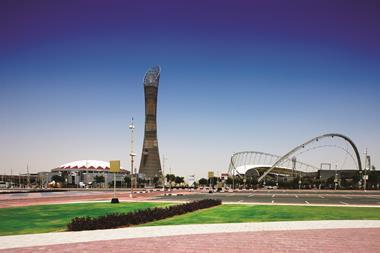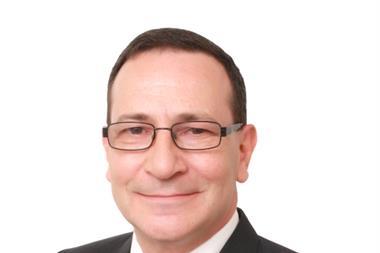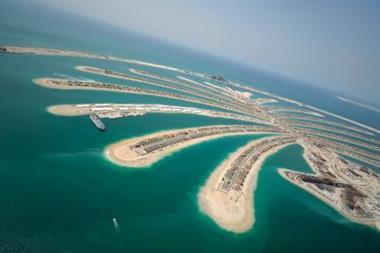There is a growing market for insurance buyers seeking Shariah-compliant solutions
The rapid economic growth of the Muslim world, increasing acceptance of Sharia-compliant insurance and a widening list of specialist reinsurance players have combined to build a takaful market worth $20bn in premiums.
The largest markets are Iran and Saudi Arabia, followed by the countries of the Gulf Cooperation Council (GCC) and Malaysia – where Labuan acts as a hub for takaful business from Indonesia and Brunei.
Takaful is essentially mutual insurance – a concept that has a long history in Europe and the US. But to abide with Islamic rules, a takaful insurer cannot earn interest on its investments. The wakalah model is the most popular, whereby operators can charge a management fee to cover expenses plus the cost of capital, in addition to taking a share of investment returns.
Outside Saudi Arabia, which has had its own model of cooperative insurance for many years, takaful insurance is relatively young and has been largely focused on personal lines. The concept was started in Sudan in 1979 and was soon adopted by other countries in the GCC. It is now sold in more than 32 countries, significantly helping to increase penetration in countries where insurance had hitherto not been accepted.
The lack of capacity for retakaful (reinsurance for takaful insurers) has been one of the main factors hindering the growth of the market. Takaful operators have often been forced to place their business with conventional reinsurers, a factor encouraged by the difficulty in applying the mutual concept to commercial risks. This is why so much commercial takaful business goes in through the front door and is reinsured straight back out through the back door.
As Richard Bishop, chief executive of Cobalt Underwriting, explains: “You’ve got to have a large customer base with a similar risk exposure to create a mutual. So when you bring those markets to bear on a risk that is commercial in nature, the whole concept of mutuality doesn’t work.
“All they have done in the past is just transfer the risk through them and out into the corporate reinsurance world, and this makes a bit of a mockery of their claims to be fully Shariah-compliant.”
Developing market
A market for commercial takaful is gradually evolving, driven by demand emanating from the GCC. The market in Asia remains largely focused on ‘family takaful’ such as life, health and pension products.
“The Far East takaful market has thus far stayed away from getting involved in the commercial arena, but that is changing and therefore there are opportunities in that part of the world as well,” observes Bishop.
The lack of retakaful capacity is also beginning to resolve. Many of the major European reinsurers have set up retakaful operations in the MENA region over the past five years, along with local players.
“On the treaty side, there is definitely enough retakaful capacity available either from the regional players like us, ACR Retakaful and Saudi Re and, of course, the retakaful arms of major reinsurer such as Munich, Swiss, Hannover and Scor,” says Firas El Azem, general manager of Dubai-based Takaful Re.
“There is surely still a need for facultative reinsurance capacity as far as major or very specialised risks are concerned.” he adds. “However, I don’t see this as an obstacle for takaful operators and it shouldn’t hinder them from growing.
“There are a lot of big projects planned in the GCC Area needing construction all risks and property insurance, and this can be written by the takaful companies too. The more important subject for me is if they –and the conventional insurers - maintain proper underwriting discipline and charge risk-adequate rates. This will be the main trigger for the involvement of retakaful companies as well as reinsurers.
“If everything is done in a professional way, the takaful operator should have a competitive edge. Working according to mutual principles, takaful operators have to return part or in some case the whole surplus generated in the mutual insurance funds. This should be a big incentive to insure with a takaful company.”
London: a centre for Islamic finance?
Cobalt Underwriting was set up in 2012 with the objective of establishing London as a leading global centre for Shariah-compliant insurance capacity. It is financially backed by Capita, assisted by Aon Benfield and has XL Insurance and QBE Europe as capacity providers.
Its underwriting focus is on direct and facultative property and construction. Its first risk, written with XL, covered a deal to acquire a high-profile London property portfolio.
Bishop sees significant opportunity for London to attract retakaful business. “Cobalt was formed to act as an underwriting agency on the part of as many capacity providers who want to get involved using a standardised blueprinted approach, which we’ve developed and had signed off by the scholars,” he says.
“One has to assume the demand that currently exists for conventional reinsurance that flows through the takaful market should in theory be a good starting place.
“Take on top of that the fact that throughout the Muslim world, particularly the Middle East, insurance penetration is very low. Therefore there has to be a greater opportunity to enter the marketplace on the back of the Shariah-compliant nature of our products.”
There is a keen appetite in London to develop Islamic finance and takaful insurance and reinsurance. “We’re only a small organisation based here in London,” says Bishop. “We have the capability to be scalable. What we first need to do is to create a flow of enquiry that feeds our market and generates its own momentum.
“We’ve spent a lot of time educating the brokers that are dealing with that part of the world that may be able to show us the business we’d like to see. We try to explain to them what our USP is. Traditionally [MENA clients] are cash-rich, so they are very pro-investment in asset classes, which is exactly what we want to see.
“We don’t want to see lots of long-tail risk, so short-tail investment - property or construction projects - is an area where we want to see more activity and where we believe there’s more than enough to go around.”
He adds: “A lot of it doesn’t find its way back to London. It’s a highly competitive marketplace. What we bring is quality capacity and not every buyer is motivated to buy on this criteria, but it is something they are becoming increasingly aware of – particularly if their financiers say you’ve got to have decent quality insurance behind what you do.
“You can’t afford to be so expensive that nobody comes to you in the first place, but at the same time you have to be mindful that certain risks in the Middle East are rated at or below cost and therefore you can’t just write everything that comes in. It’s about building trust and understanding between two marketplaces and if London is able to provide retakaful capacity that other parts of the world aren’t, in theory that should mean the business flows into London.”
Lloyd’s in Dubai
Lloyd’s recently announced its decision to open an office in the Dubai International Financial Centre. Retakaful could be one of the areas it looks to develop, assuming it can compete in what is a highly competitive and soft market.
The decision to establish a MENA base is part of its Vision 2025 strategy, which has a focus on emerging markets. “Lloyd’s presence here should be an added value to the market,” says Takaful Re’s El Azem. “It will be additional capacity, but it will be professional capacity, so we trust it will assist.”
Insureds looking to take out Shariah-compliant insurance do not necessarily need themselves to be based in the Muslim world. Multinationals that find themselves with a growing asset base in Islamic countries are opting for takaful over conventional cover, notes Bishop.
“Shariah-compliant insurance is available to anybody, so long as the asset or risk being insured is Shariah-compliant,” he says. “We’ve seen an awful lot of interest from multinationals who are operating in Muslim countries that want to be seen to be doing what they can to comply with local realities.
“These are countries that will be much more comfortable with people and organisations who are sympathetic to the Muslim beliefs and I think a number of companies think this might give them a competitive advantage.”




















No comments yet